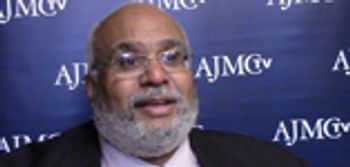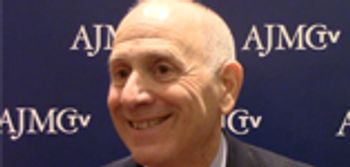
An analysis of hospital participation in plans on the Affordable Care Act exchanges found that despite increasingly narrow networks, almost all highly ranked hospitals can be found in at least 1 plan.

An analysis of hospital participation in plans on the Affordable Care Act exchanges found that despite increasingly narrow networks, almost all highly ranked hospitals can be found in at least 1 plan.

In spite of a surge in telehealth-related policies, telehealth claims numbers remain low, according to an analysis of private payer reimbursements to primary care providers for telehealth services from 2009 to 2013.

The Affordable Care Act and rising healthcare spending were the main topics of conversation at America’s Health Insurance Plans Health Insurance Exchanges Forum and National Health Policy Conference, which were held March 8-10 in Washington, DC.

The proposals recommend modernizing policies across the healthcare industry, including the drug discovery and development process, promoting value-driven healthcare, increasing the consumer voice, and addressing market distortions.

What we're reading, March 10, 2016: spending on drug advertisements up 60% over 4 years; lawsuit between Gilead and Merck over hepatitis C virus drugs; and Tennessee considers allowing pharmacists to prescribe contraceptives.

Despite big changes in the American healthcare system over the past 2 years, most US residents report that the healthcare they personally receive has remained about the same.

Senators Amy Klobuchar (D-MN) and Jeanne Shaheen (D-NH) have sent a letter to the FDA urging the regulatory body to find efficient ways to distribute expensive cancer drugs.

Mental health parity laws have created very little progress, almost none, in enhancing access and utilization of mental health services.

The health insurance marketplace’s application/verification process is vulnerable to fraud, found a report from the US Government Accountability Office.

There are a number of reasons why enrollment in the Affordable Care Act's health insurance plans is lower than initially estimated, according to a new report.

To discuss the challenges with the implementation of value tools, the Association of Community Cancer Centers invited a panel of experts during its 42nd annual meeting on policy, value, and quality in Washington, DC.

What we're reading, March 4, 2016: Since the passage of the Affordable Care Act, 20 million people have signed up for healthcare coverage; the FDA has a backlog of 4000 drug applications waiting for approval; and Flint, Michigan, receives expanded Medicaid coverage.

Social workers represent a critical part of the multidisciplinary healthcare team, but they are not always present in medical settings.

What we're reading, March 3, 2016: additional funding for the opioid abuse bill was shot down in the Senate; Donald Trump releases his plan to replace Obamacare; and Christine Cassel, MD, discusses designing a new medical school.

What we're reading, March 2, 2016: FDA commissioner pledges stronger efforts to develop harder-to-abuse painkillers; Olympus Corp. agrees to largest settlement for violating anti-kickback laws; and the Supreme Court hears Texas abortion case with just 8 members on the bench.

Starting at the very top, with boards and management is one way that healthcare institutions can better diversify their workforce, and doing so will make health equity achievable, said Georges Benjamin, MD, executive director of the American Public Health Association.

The event saw participation by patient advocacy groups, health economists, health policy researchers, and patient advocacy groups-the primary interest of the participants was to identify the healthcare-associated economic hardships faced by patients and their caregivers across therapeutic areas and discuss potential solutions that could help alleviate some of this burden.

As the health insurance markets continue to evolve, CMS today released the final rule to set standards for plans and the health insurance marketplaces.

What we're reading, February 29, 2016: hospital readmission declines tied to Obamacare program; Medicare negotiating powers may not have a large impact; and Aetna is on board with Affordable Care Act exchanges again.

New research found nearly all highly ranked regional hospitals to be in network with at least one marketplace plan in both 2015 and 2016.

The top stories in managed care this week include findings on cancer survival disparities, CVS Health claimed drug spending growth slowed in 2015, and Horizon Blue Cross Blue Shield of New Jersey's OMNIA plan is interfering with existing patient-centered medical homes.

In the years since the passage of the ACA, the partisan divide over "Obamacare" remains as sharp as ever. The Kaiser poll also found that reaction to universal health coverage shifts depending on what it is called.

There are multiple barriers to accessing innovative oncology care from the design of healthcare benefits to a patient’s position on the federal poverty level, explained Daniel J. Klein, president and CEO of the Patient Access Network (PAN) Foundation.

What we're reading, February 25, 2016: the government will require proof of eligibility for enrollment in special sign-up periods under the Affordable Care Act (ACA); this year's flu vaccine is more effective; and 6 states are suing the Obama administration over an ACA fee.

What we're reading: drug makers are not reporting complete information about side effects; Johnson & Johnson will pay $72 million to the family of a woman who blamed her ovarian cancer on talcum powder; and Maine and Utah make new attempts at expanding Medicaid.

259 Prospect Plains Rd, Bldg H
Cranbury, NJ 08512
© 2025 MJH Life Sciences®
All rights reserved.
